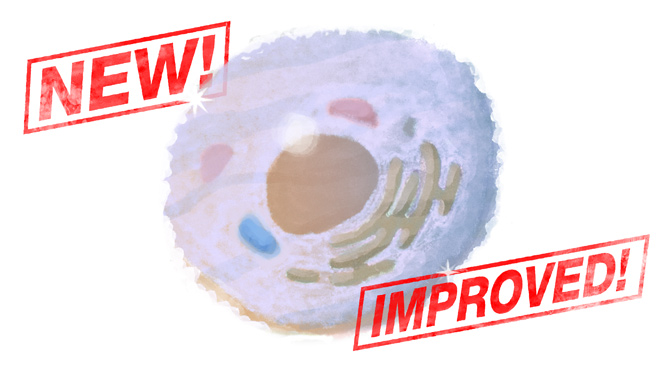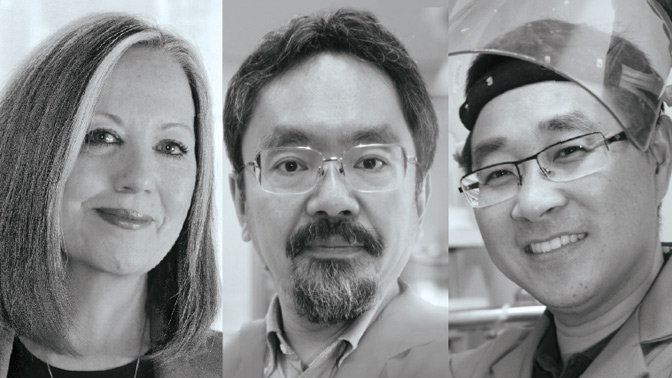
Into the Light
A new program to support breast cancer survivors
Coping with cancer and receiving treatment can leave patients scarred and emotionally drained. Having lived through a combination of surgery, chemotherapy and radiotherapy, survivors often grapple with cancer’s emotional toll long after their physical recovery.
“Breast cancer survivors may have lost one or both of their breasts, have residual scars or swelling, and start menopause prematurely,” describes Dr. Mary Jane Esplen. “These effects often cause survivors to experience grief, lowered self-esteem and confidence, and shame about the appearance of their body.”
To improve the emotional well-being of breast cancer survivors, Dr. Esplen developed a program called Restoring Body Image after Cancer (ReBIC).
The program consists of eight group sessions where participants are encouraged to generate a series of images in their mind’s eye. These exercises help them to express their personal identity and self-image difficulties and to work through them. Factors that promote a negative body image and feelings of shame are also discussed.
In a study completed by Dr. Esplen to evaluate the impact of ReBIC, participants reported improvements in body image, their quality of life and ability to manage breast cancer-related symptoms. In light of its success, ReBIC is now being offered at University Health Network.
EsplenMJ, et al. J Clin Oncol. 2018 Mar; 36(8):749-756. Supported by the Canadian Breast Cancer Foundation (now part of the Canadian Cancer Society) and the Canadian Breast Cancer Research Alliance.
 Performance Upgrade for Immune Cells
Performance Upgrade for Immune Cells
Enhancing immunotherapy to treat a variety of cancers
When it comes to self-improvement, we have all sorts of tools at our disposal: glasses to improve our vision, treadmills to help us stay fit, and vaccines to ward off infectious diseases.
A research team led by Dr. Naoto Hirano has engineered a molecule with the potential to enhance the effectiveness of our immune system against cancer.
Chimeric antigen receptor (CAR) T cell therapy is an immunotherapy currently approved in the United States to treat blood cancers. It involves extracting immune cells from the patient, genetically engineering them to recognize cancerous cells, and infusing them back into the patient where they are able to target and kill cancerous cells.
“The CAR molecule enables immune cells to recognize cancerous cells,” explains Dr. Hirano.
“We have engineered an improved CAR molecule
that imparts greater potency to immune cells against different cancers, including solid tumours, and showed that it did not worsen any potential side effects in experimental models.”
Future work will focus on validating these findings and translating them into clinical trials to improve the safety and efficacy of the CAR T cell therapy.
Kagoya Y, et al. Nat Med. 2018 Mar; 24(3):352-359. Supported by Canadian Institutes of Health Research (CIHR), the Ontario Institute for Cancer Research, BioCanRx, Japan Society for the Promotion of Science, the Government of Ontario, the Natural Sciences and Engineering Research Council of Canada (NSERC), Takara Bio Inc. and The Princess Margaret Cancer Foundation (PMCF).
L ittle Changes that Matter
ittle Changes that Matter
A single DNA letter variation in the genome can impact cancer risk
Just as a snowfall atop a mountain can mark the beginning of an avalanche, a single, often innocuous event can mark the beginning of a catastrophe.
Some of the most devastating cancers can also have an unremarkable beginning. Dr. Hansen He has discovered just such a seemingly innocuous event.
Tracing back the progression of prostate cancer, Dr. He and his team discovered that varying a single letter in an individual’s genetic code can increase the risk for a more aggressive form of prostate cancer.
“We found that this particular genetic variation is not in a functional region of the genome—such as a region that contains instructions for building cellular machinery or for housekeeping activities,” says Dr. He.
“Rather, it was in a region of the genome considered to have no useful information.”
“We need more studies at the genome level to understand how these single genetic variations can change the way cells regulate their activity,” adds Dr. He. “Then we can evaluate how they change the risk for cancer and take steps to prevent them from worsening outcomes.”
Hua JT, et al. Cell. 2018 Jul 26; 174(3):564-575.e18. Supported by NSERC; CIHR; the Movember Foundation; Prostate Cancer Canada; the U.S. Department of Defense; The Terry Fox Research Institute; the Ministry of Economic Development, Job Creation and Trade; and PMCF.

Princess Margaret Cancer Centre (PM) researchers featured in the above stories are (L-R): Dr. Mary Jane Esplen, PM Affiliate Scientist; Dr. Naoto Hirano, PM Senior Scientist; and Dr. Hansen He, PM Senior Scientist.




